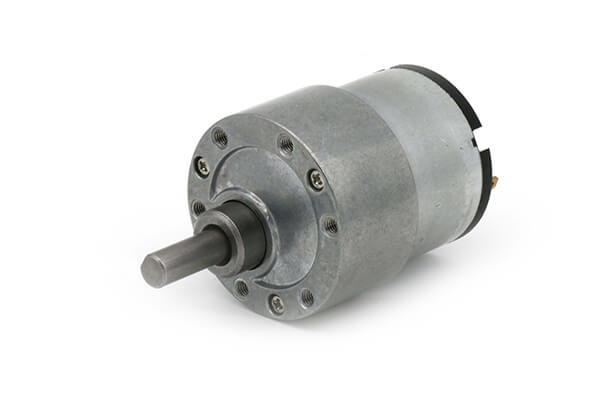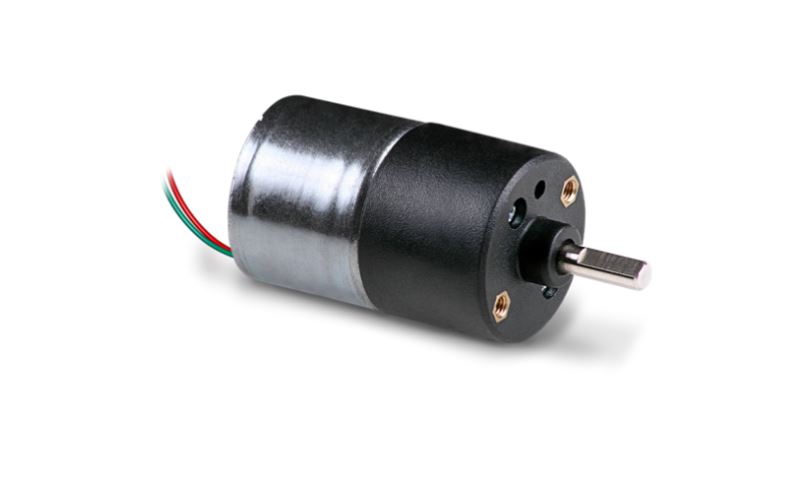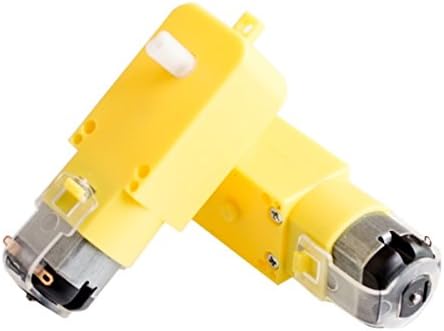Product Description
Company Profiles
-We are a leading gear motor manufacturer
ZHangZhoug Xihu (West Lake) Dis.hai Reducer is a leading manufacturer of gear motor and gearbox.
Since 1991, we have specialized in manufacturing a wide range of gear motor and gear box including:
- helical gear motor
- helical bevel gear motor
- parallel shaft helical gear motor
- helical worm gear motor
- hoist drive
- heavy-duty helical gearbox
- heavy-duty helical bevel gearbox
- gear motor for car parking system
- sprial bevel gearbox
Product Description
D series gear motor is composed with two-stage or three-stage gears. Input shaft and output shaft is inline.
Mounting position: footed mounting, flange mounting, both flange and footed mounting etc.
Thechnical data:
Output speed 10 ~ 800 rpm
Rated output torque 10 ~ 20000 Nm
Motor power 0.12 ~ 200 KW
Product Show
Product Specification
| Product features | |||||||
| 1. D series helical gear motor own rational design, compact construction, smaller size than cycloidal gearmotor at the same permitted torque. | |||||||
| 2. Little vibration and low noise, with high transmission efficiency. | |||||||
| 3. The products have been mainly used in chemical machinery, cement agitator machinery, printing and packaging machinery, mine and power transmission machinery, metallurgy etc. | |||||||
| General Technical data | |||||||
| Housing material | HT250 high-strength cast iron | ||||||
| Housing hardness | HBS190-240 | ||||||
| Pinion material | 20CrMnTiH | ||||||
| Gear material | 20CrMnTiH | ||||||
| Surface hardness of gears | HRC58°~62 ° | ||||||
| Gear core hardness | HRC33~40 | ||||||
| Input/output shaft material | 40CrMnTiH | ||||||
| Input / Output shaft hardness | HRC25~30 | ||||||
| Machining precision of gears | accurate grinding, 6~7 Grade | ||||||
| Lubricating oil | L-CKC220 (GB 5903-95) | ||||||
| Heat treatment | tempering, cementiting, quenching, etc. | ||||||
| Efficiency | 94%~96% (depends on the transmission stage) | ||||||
| Noise (MAX) | 60~68dB | ||||||
| Temp. rise (MAX) | 40°C | ||||||
| Temp. rise (Oil)(MAX) | 50°C | ||||||
| Vibration | ≤20µm | ||||||
| Backlash | ≤20Arcmin | ||||||
| Brand of bearings | China Top brand C&U,LYC,TMB or other brands requested, SKF….. | ||||||
| Brand of oil seal | CTY— ZheJiang or other brands requested | ||||||
| D —- series helical gear motor | |||||||
| D-series single stages | |||||||
| Model | Output Shaft Dia. | Center Height | Output Flange Dia. | Power | Ratio | Permitted Torque | Weight |
| Solid (mm) | (mm) | (mm) | (kw) | (Nm) | (KGS) | ||
| D37 | 25k6 | 90h13 | 110/160 | 0.12~3 | 4~135 | 210 | 11 |
| D47 | 30k6 | 115h13 | 110/160 | 0.12~5.5 | 4~172 | 335 | 16 |
| D57 | 35k6 | 115h13 | 130/200 | 0.12~7.5 | 5~188 | 490 | 19 |
| D67 | 35k6 | 130h13 | 180/250 | 0.12~7.5 | 5~193 | 570 | 28 |
| D77 | 40k6 | 140h13 | 230/300 | 0.18~11 | 5~197 | 890 | 39 |
| D87 | 50k6 | 180h13 | 250/350 | 0.55~22 | 5~246 | 1660 | 65 |
| D97 | 60m6 | 225h13 | 350/450 | 0.55~30 | 5~290 | 3000 | 110 |
| D107 | 70m6 | 250h13 | 350/450 | 1.5~45 | 2~249 | 4550 | 200 |
| D137 | 90m6 | 315h13 | 450/550 | 3~55 | 5~220 | 9270 | 280 |
| D147 | 110m6 | 355h13 | 450/550 | 4~90 | 5~167 | 14940 | 430 |
| D167 | 120m6 | 425h13 | 550/660 | 7.5~160 | 10~230 | 20880 | 650 |
| D series double stages | |||||||
| Model | Output Shaft Dia. | Center Height | Output Flange Dia. | Power | Ratio | Permitted Torque | Output Speed |
| Solid (mm) | (mm) | (mm) | (kw) | (Nm) | (RPM) | ||
| D27D17 | 25k6 | 90h13 | 95/140 | 0.12~0.18 | 90~229 | 140 | 6~15 |
| D37D17 | 25k6 | 90h13 | 110/160 | 0.12~0.25 | 90~156 | 225 | 4.1~14 |
| D47D37 | 30k6 | 115h13 | 110/160 | 0.12~0.25 | 154~572 | 340 | 2.4~8.5 |
| D57D37 | 35k6 | 115h13 | 130/200 | 0.12~0.25 | 142~782 | 477 | 1.8~9.2 |
| D67D37 | 35k6 | 130h13 | 180/250 | 0.12~0.37 | 158~956 | 590 | 1.4~8.2 |
| D77D37 | 40k6 | 140h13 | 230/300 | 0.12~0.55 | 186~1430 | 880 | 0.97~7.3 |
| D87D57 | 50k6 | 180h13 | 250/350 | 0.12~1.1 | 195~2873 | 1665 | 0.48~7.2 |
| D97D57 | 60m6 | 225h13 | 350/450 | 0.12~2.2 | 209~4678 | 2930 | 0.29~6.8 |
| D107D77 | 70m6 | 250h13 | 350/450 | 0.12~2.2 | 214~7583 | 4510 | 0.18-6.6 |
| D137D77 | 90m6 | 315h13 | 450/550 | 0.12~4 | 35.1~12921 | 9090 | 0.11~6.3 |
| D147D77 | 110m6 | 355h13 | 450/550 | 0.12~4 | 415~21342 | 14940 | 0.06~3.4 |
| D147D87 | 110m6 | 355h13 | 450/550 | 1.5~11 | 159~533 | 14940 | 2.6~9.1 |
| D167D97 | 120m6 | 425h13 | 550/660 | 1.5~11 | 279~2333 | 25710 | 0.6~5.2 |
| D167D107 | 120m6 | 425h13 | 550/660 | 11 | 4.9~8.5 | 17640 | 4.9~8.5 |
| Remark: the weight without oil and motor, shaft and flange input add 10%. | |||||||
Package
Plastic bag + wooden carton
Certificate
FAQ
Q: Can you print other colors?
Yes. Customized color can be printed on the gear motor according to your requirements.
Q: Is that factory price?
Yes. We assure you all prices are based on factory.
Q: What is the life span? what is the guarantee
The lifespan of gear motor can reach 5-20 years depending on different working conditions .The guarantee time is 1 year after delivery.
Q: What documents are available?
A full range documents including structural drawings, packing list, installation manual and relative certificates can be provided. Moreover, customs declaration is provided. We provide one-stop service for you.
Q: Is it able to customized?
yes, we could re-design and produce the gear motor as your requirements if the quantity is large.
| Application: | Motor, Machinery, Agitator.Conveyors |
|---|---|
| Hardness: | Hardened Tooth Surface |
| Installation: | Horizontal Type |
| Layout: | Coaxial |
| Gear Shape: | Helical |
| Step: | Three-Step |

Can gear motors be used in robotics, and if so, what are some notable applications?
Yes, gear motors are widely used in robotics due to their ability to provide torque, precise control, and compact size. They play a crucial role in various robotic applications, enabling the movement, manipulation, and control of robotic systems. Here are some notable applications of gear motors in robotics:
1. Robotic Arm Manipulation:
Gear motors are commonly used in robotic arms to provide precise and controlled movement. They enable the articulation of the arm’s joints, allowing the robot to reach different positions and orientations. Gear motors with high torque capabilities are essential for lifting, rotating, and manipulating objects with varying weights and sizes.
2. Mobile Robots:
Gear motors are employed in mobile robots, including wheeled robots and legged robots, to drive their locomotion. They provide the necessary torque and control for the robot to move, turn, and navigate in different environments. Gear motors with appropriate gear ratios ensure the robot’s mobility, stability, and maneuverability.
3. Robotic Grippers and End Effectors:
Gear motors are used in robotic grippers and end effectors to control the opening, closing, and gripping force. By integrating gear motors into the gripper mechanism, robots can grasp and manipulate objects of various shapes, sizes, and weights. The gear motors enable precise control over the gripping action, allowing the robot to handle delicate or fragile objects with care.
4. Autonomous Drones and UAVs:
Gear motors are utilized in the propulsion systems of autonomous drones and unmanned aerial vehicles (UAVs). They drive the propellers or rotors, providing the necessary thrust and control for the drone’s flight. Gear motors with high power-to-weight ratios, efficient energy conversion, and precise speed control are crucial for achieving stable and maneuverable flight in drones.
5. Humanoid Robots:
Gear motors are integral to the movement and functionality of humanoid robots. They are used in robotic joints, such as hips, knees, and shoulders, to enable human-like movements. Gear motors with appropriate torque and speed capabilities allow humanoid robots to walk, run, climb stairs, and perform complex motions resembling human actions.
6. Robotic Exoskeletons:
Gear motors play a vital role in robotic exoskeletons, which are wearable robotic devices designed to augment human strength and assist in physical tasks. Gear motors are used in the exoskeleton’s joints and actuators, providing the necessary torque and control to enhance human abilities. They enable users to perform tasks with reduced effort, assist in rehabilitation, or provide support in physically demanding environments.
These are just a few notable applications of gear motors in robotics. Their versatility, torque capabilities, precise control, and compact size make them indispensable components in various robotic systems. Gear motors enable robots to perform complex tasks, move with agility, interact with the environment, and assist humans in a wide range of applications, from industrial automation to healthcare and exploration.

How does the voltage and power rating of a gear motor impact its suitability for different tasks?
The voltage and power rating of a gear motor are important factors that influence its suitability for different tasks. These specifications determine the motor’s electrical characteristics and its ability to perform specific tasks effectively. Here’s a detailed explanation of how voltage and power rating impact the suitability of a gear motor for different tasks:
1. Voltage Rating:
The voltage rating of a gear motor refers to the electrical voltage it requires to operate optimally. Here’s how the voltage rating affects suitability:
- Compatibility with Power Supply: The gear motor’s voltage rating must match the available power supply. Using a motor with a voltage rating that is too high or too low for the power supply can lead to improper operation or damage to the motor.
- Electrical Safety: Adhering to the specified voltage rating ensures electrical safety. Using a motor with a higher voltage rating than recommended can pose safety hazards, while using a motor with a lower voltage rating may result in inadequate performance.
- Application Flexibility: Different tasks or applications may have specific voltage requirements. For example, low-voltage gear motors are commonly used in battery-powered devices or applications with low-power requirements, while high-voltage gear motors are suitable for industrial applications or tasks that require higher power output.
2. Power Rating:
The power rating of a gear motor indicates its ability to deliver mechanical power. It is typically specified in units of watts (W) or horsepower (HP). The power rating impacts the suitability of a gear motor in the following ways:
- Load Capacity: The power rating determines the maximum load that a gear motor can handle. Motors with higher power ratings are capable of driving heavier loads or handling tasks that require more torque.
- Speed and Torque: The power rating affects the motor’s speed and torque characteristics. Motors with higher power ratings generally offer higher speeds and greater torque output, making them suitable for applications that require faster operation or the ability to overcome higher resistance or loads.
- Efficiency and Energy Consumption: The power rating is related to the motor’s efficiency and energy consumption. Higher power-rated motors may be more efficient, resulting in lower energy losses and reduced operating costs over time.
- Thermal Considerations: Motors with higher power ratings may generate more heat during operation. It is crucial to consider the motor’s power rating in relation to its thermal management capabilities to prevent overheating and ensure long-term reliability.
Considerations for Task Suitability:
When selecting a gear motor for a specific task, it is important to consider the following factors in relation to the voltage and power rating:
- Required Torque and Load: Assess the torque and load requirements of the task to ensure that the gear motor’s power rating is sufficient to handle the expected load without being overloaded.
- Speed and Precision: Consider the desired speed and precision of the task. Motors with higher power ratings generally offer better speed control and accuracy.
- Power Supply Availability: Evaluate the availability and compatibility of the power supply with the gear motor’s voltage rating. Ensure that the power supply can provide the required voltage for the motor’s optimal operation.
- Environmental Factors: Consider any specific environmental factors, such as temperature or humidity, that may impact the gear motor’s performance. Ensure that the motor’s voltage and power ratings are suitable for the intended operating conditions.
In summary, the voltage and power rating of a gear motor have significant implications for its suitability in different tasks. The voltage rating determines compatibility with the power supply and ensures electrical safety, while the power rating influences load capacity, speed, torque, efficiency, and thermal considerations. When choosing a gear motor, it is crucial to carefully evaluate the task requirements and consider the voltage and power rating in relation to factors such as torque, speed, power supply availability, and environmental conditions.

In which industries are gear motors commonly used, and what are their primary applications?
Gear motors find widespread use in various industries due to their versatility, reliability, and ability to provide controlled mechanical power. They are employed in a wide range of applications that require precise power transmission and speed control. Here’s a detailed explanation of the industries where gear motors are commonly used and their primary applications:
1. Robotics and Automation:
Gear motors play a crucial role in robotics and automation industries. They are used in robotic arms, conveyor systems, automated assembly lines, and other robotic applications. Gear motors provide the required torque, speed control, and directional control necessary for the precise movements and operations of robots. They enable accurate positioning, gripping, and manipulation tasks in industrial and commercial automation settings.
2. Automotive Industry:
The automotive industry extensively utilizes gear motors in various applications. They are used in power windows, windshield wipers, HVAC systems, seat adjustment mechanisms, and many other automotive components. Gear motors provide the necessary torque and speed control for these systems, enabling smooth and efficient operation. Additionally, gear motors are also utilized in electric and hybrid vehicles for powertrain applications.
3. Manufacturing and Machinery:
Gear motors find wide application in the manufacturing and machinery sector. They are used in conveyor belts, packaging equipment, material handling systems, industrial mixers, and other machinery. Gear motors provide reliable power transmission, precise speed control, and torque amplification, ensuring efficient and synchronized operation of various manufacturing processes and machinery.
4. HVAC and Building Systems:
In heating, ventilation, and air conditioning (HVAC) systems, gear motors are commonly used in damper actuators, control valves, and fan systems. They enable precise control of airflow, temperature, and pressure, contributing to energy efficiency and comfort in buildings. Gear motors also find applications in automatic doors, blinds, and gate systems, providing reliable and controlled movement.
5. Marine and Offshore Industry:
Gear motors are extensively used in the marine and offshore industry, particularly in propulsion systems, winches, and cranes. They provide the required torque and speed control for various marine operations, including steering, anchor handling, cargo handling, and positioning equipment. Gear motors in marine applications are designed to withstand harsh environments and provide reliable performance under demanding conditions.
6. Renewable Energy Systems:
The renewable energy sector, including wind turbines and solar tracking systems, relies on gear motors for efficient power generation. Gear motors are used to adjust the rotor angle and position in wind turbines, optimizing their performance in different wind conditions. In solar tracking systems, gear motors enable the precise movement and alignment of solar panels to maximize sunlight capture and energy production.
7. Medical and Healthcare:
Gear motors have applications in the medical and healthcare industry, including in medical equipment, laboratory devices, and patient care systems. They are used in devices such as infusion pumps, ventilators, surgical robots, and diagnostic equipment. Gear motors provide precise control and smooth operation, ensuring accurate dosing, controlled movements, and reliable functionality in critical medical applications.
These are just a few examples of the industries where gear motors are commonly used. Their versatility and ability to provide controlled mechanical power make them indispensable in numerous applications requiring torque amplification, speed control, directional control, and load distribution. The reliable and efficient power transmission offered by gear motors contributes to the smooth and precise operation of machinery and systems in various industries.


editor by CX 2023-12-12